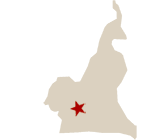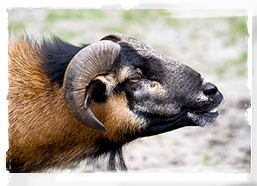An Introduction to Cameroon
Referred to as 'Africa in miniature' for its geological and cultural diversity the Republic of Cameroon derives its name from Rio dos Camar�es ('River of Shrimp') - the name given the area by 15th century Portuguese explorers. Cameroon became a German colony in 1884, was divided after WW1 between France and Britain as League of Nations mandates, and reunited with independence in 1972. See full country profile.Latest Research News from Africa
1 current African job:

GOVERNMENT: republic; multiparty presidential regime
AREA: 475,442 sq km
POPULATION: 19,711,291 (July 2011 est.)
MAJOR LANGUAGE: French and English (de facto)

Some business and general info
The Market Research Industry
Trade and Industry in Cameroon
The most famous Cameroonian footballer is surely Roger Milla - see this goal and legendary celebration.
Go to next country
Referred to as 'Africa in miniature' for its geological and cultural diversity the Republic of Cameroon derives its name from Rio dos Camar�es ('River of Shrimp') - the name given the area by 15th century Portuguese explorers. Cameroon became a German colony in 1884, was divided after WW1 between France and Britain as League of Nations mandates, and reunited with independence in 1972.
Compared to other African countries, Cameroon enjoys relatively high political and social stability. This has permitted the development of agriculture, roads, railways, and large petroleum and timber industries. Nevertheless, large numbers of Cameroonians live in poverty as subsistence farmers. Power lies firmly in the hands of the authoritarian President since 1982, Paul Biya. The country's English speaking territories have grown increasingly alienated from the government, with calls for greater decentralization and even the secession of the former British-governed territories.
GDP: $44.33 billion (2010 est.)
Religions indigenous beliefs 40%, Christian 40%, Muslim 20%
Currency: Central African Franc (XAF) - GBP 1 = XAF 746.25
Telephone Code: +237
Research Industry
The West Africa Region (Nigeria, Ivory Coast, Senegal, Cameroon, Ghana, Benin Togo and Mali) had an industry turnover of $USD 46m in 2009, a 7.5% growth on 2008.Source: ESOMAR
Oil resources (albeit modest ones) and favourable agricultural conditions have given Cameroon a good start relative to other sub-Saharan economies, but it shares many of their problems, including stagnant per capita income, distributed unevenly; a top-heavy civil service; endemic corruption; and a generally unfavourable climate for business enterprise.
Since 1990, the government has embarked on various IMF and World Bank programs designed to improve the economy. The IMF is pressing for more reforms, including increased budget transparency, privatization, and poverty reduction programs.
Cameroon's chief exports include crude oil, lumber, cocoa beans, coffee, cotton and aluminium. In 2010, $USD 4.37bn worth of these goods were exported from Cameroon. Imports for the same period had an estimated worth of $USD 4.86bn, consisting of machinery, electrical, transport, fuel and food.
Email me:
laurence@mrweb.com

